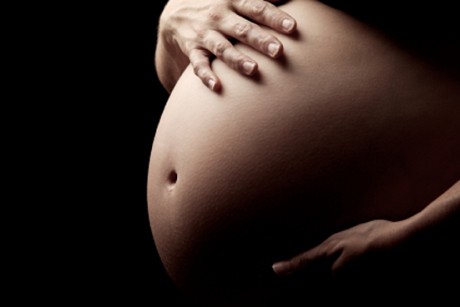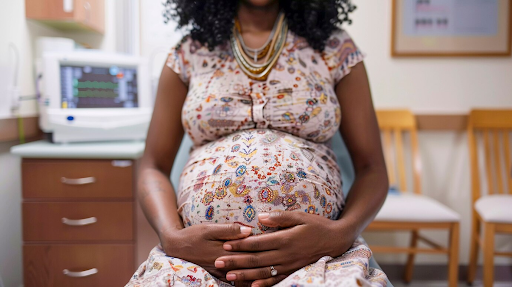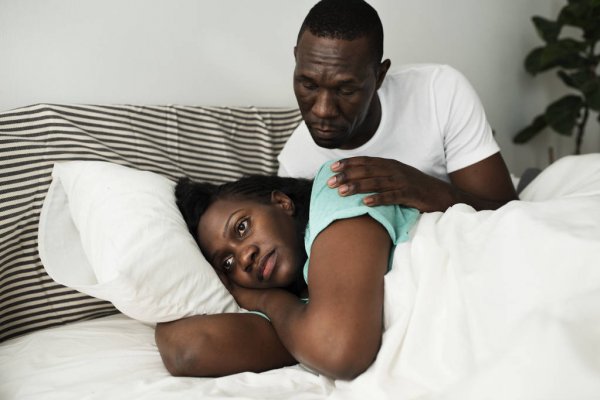Chinyere always knew it would be hard to get pregnant because her cycles were often irregular but she and Nnamdi had been married and trying to conceive for almost a year before she began to worry.
Series of checks and ovulation tests produced good results but pregnancy didn`t happen. One thing was clear though, she wasn’t going to give up on her desire to have her own baby.
She tried taking several cycles of hormonal infertility treatments, which didn`t work at all. The only way was to go to a fertility specialist, so she and her husband went to a clinic recommended by her friends and the specialist was quite helpful.
Chinyere passed all the fertility tests and afterwards started another course of hormonal treatment and testing. They tried two intrauterine insemination (IUI) procedures.
Both went without a hitch, it was all smooth sailing, but nothing happened. She was again devastated but still persistent. The doctor advised them to give it a few months before trying again. But things still didn’t turn out right.
During the third cycle, Chinyere was almost desperate and was deciding to accept the situation, the procedure was not going on as it should. But suddenly, out of the blues, she got pregnant on the third try.
The IUI and hormonal treatment helped her get pregnant when she least expected. It was almost unbelievable and she and Nnamdi were overjoyed. In total, it took her a year to get pregnant and give birth to her first daughter, Ada.
This was over three years ago and the couple has been trying to give their daughter a sibling. They faced the same challenge of delayed conception and went back to the clinic for another shot at IUI. But after three unsuccessful cycles, they decided to move on to IVF.
Chinyere and Nnamdi’s preparation for their very first IVF cycle was a completely different experience from their IUI journey. For several weeks, she did all that she could, on the advice of the fertility specialist, to increase pregnancy chances.
She watched her diet and stopped drinking coffee and wine all through the IVF cycle and tried to keep her weight respectable.
Before the procedure at the clinic, Chinyere was advised to regulate her monthly cycle and to wait until the new period started. She was just 32, and in agreement with Nnamdi and the specialist, opted to use her own eggs.
In addition, she needed to make the ovaries hyper ovulate before proceeding with the egg retrieval. As she later confided to the specialist, the stimulation of her ovaries was a bit uncomfortable but it didn`t actually hurt or induce pain.
On the day of the egg retrieval itself, she was nervous. It was quite an intense procedure, however, with the right local anesthesia the process went smoothly and painlessly.
After the extraction, which took around 45 minutes, Chinyere was transferred to the recovery room to have some rest. Nnamdi was with her throughout and they held hands excitedly as the fertility specialist announced that they were able to extract six eggs from eight follicles.
The same day, he was told he had to provide some sperm that was needed for the fertilization. The sperm was prepared to choose the spermatozoa of the best quality. Earlier, the fertility specialist had explained that they had the best chances if they tried a combination of IVF with an advanced procedure known as Intracytoplasmic Sperm Injection or ICSI due to Nnamdi’s sperm parameters.
The ICSI procedure means that one sperm had to be introduced into to one of her eggs with a very small needle. The advantage was that it enhanced the chances of fertilization Chinyere and Nnamdi readily accepted the option even though it was added cost.
Then, there were five days of waiting. During the period they eagerly waited to hear the news of successful outcome for the fertilization process. When they finally received a telephone call from the clinic, it was good news five out of the six eggs were mature and fertilized and they ended up with two blastocysts (day 5 embryo). It was a relief for the anxious couple.
Chinyere was advised to have the embryos transferred to her uterus when they were five days old. The 5-day transfer was regarded one of the best options because doctors could watch their development and pick the ones with the best quality.
On the transfer day, Chinyere woke up with a nasty headache and Nnamdi was so concerned he suggested that the transfer should be postponed while she rested and recovered.
But Chinyere attributed her condition to just stress and anxiety on her part. She flatly refused to listen and turned down his suggestion.
Before Nnamdi could even stop her, she was out of bed and in the bathroom to prepare for the big day. Less than an hour later, they were at the clinic.
Chinyere and Nnamdi wanted more embryos but not discouraged. The two embryos were transferred.
The transfer was emotional and was watched by the doctor, embryologist, and some nurses. The embryos were introduced through a special tube.
Chinyere felt almost nothing, she was in a silent prayer all through and didn’t realize that the procedure had been completed until the doctor said it was okay and she could go home. It wasn’t until she had actually walked out to the recovery room and realized that everything was indeed over. She and Nnamdi went home and had to do a two-week wait.
When it was over, she took a test and saw a thin second line on a pregnancy test, her smile lit the room. She was pregnant! But that wasn’t the end of the story. A few weeks later when she went for an ultrasound scan, the specialist that did the scan kept looking at her and Nnamdi and smiled at them. She later announced that Chinyere’s pregnancy was progressing normally, however, she could hardly believe her ears when the doctor carrying out the scan hinted that she might have picked up two heartbeats. Chinyere’s heart did a summersault. Two heartbeats meant twins! This is the story behind the couple’s IVF journey, which was really intense and emotional and resulted in the birth of their adorable twins – Emeka and Nneka.





